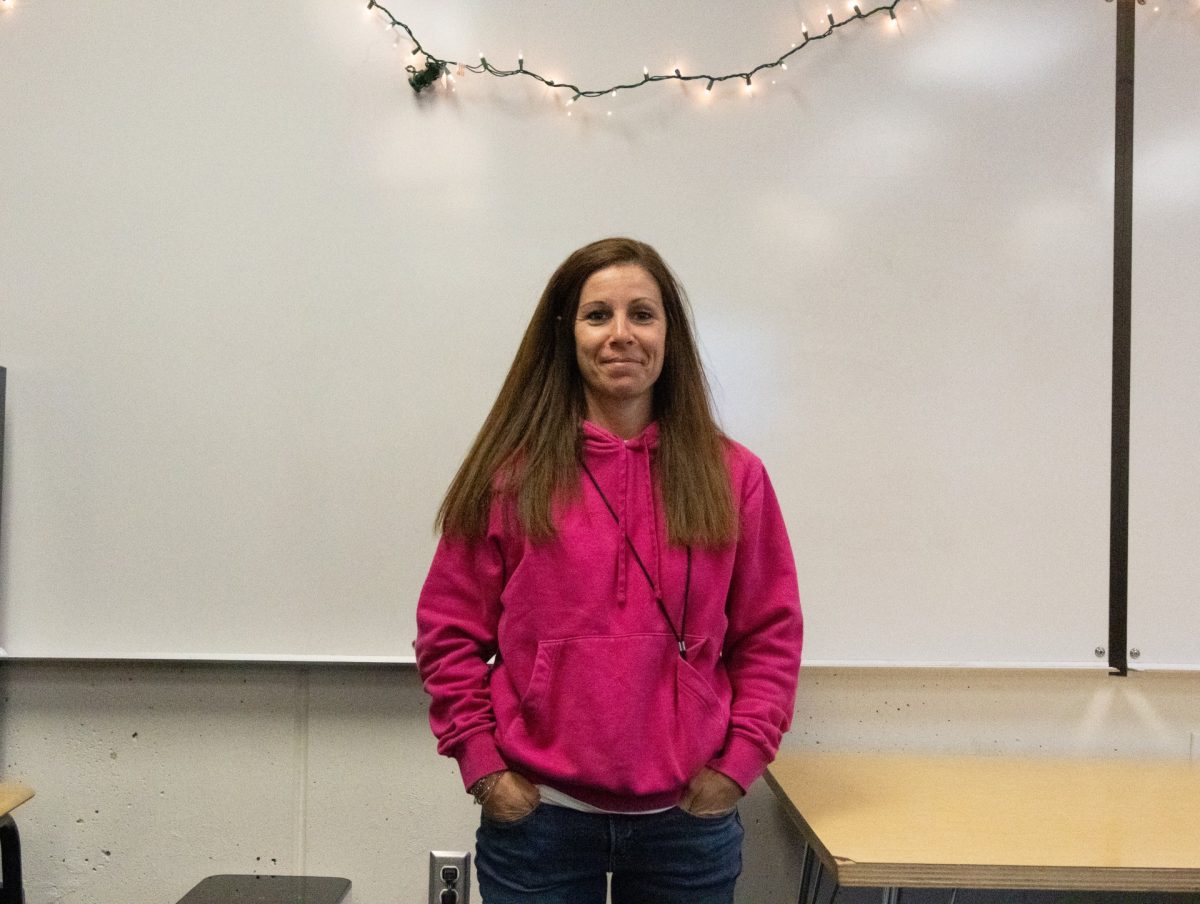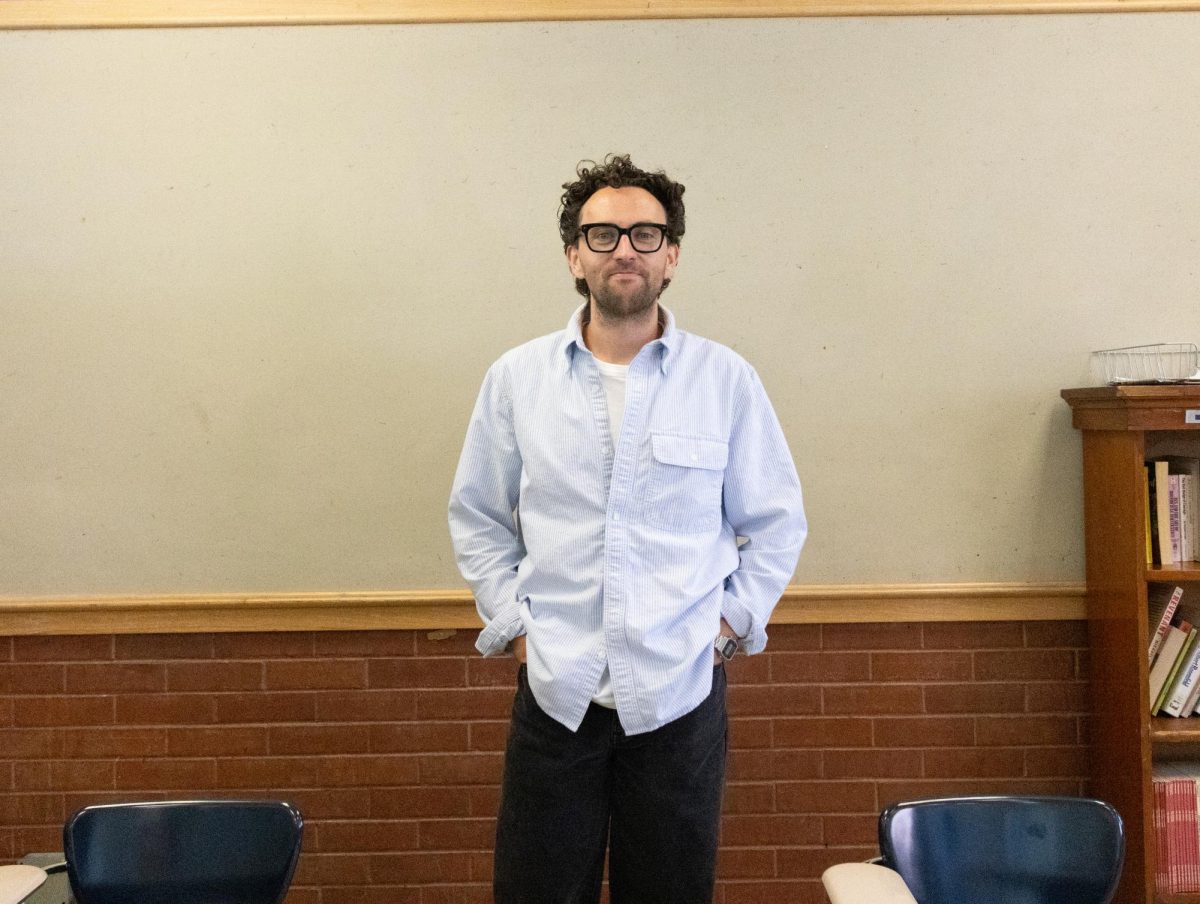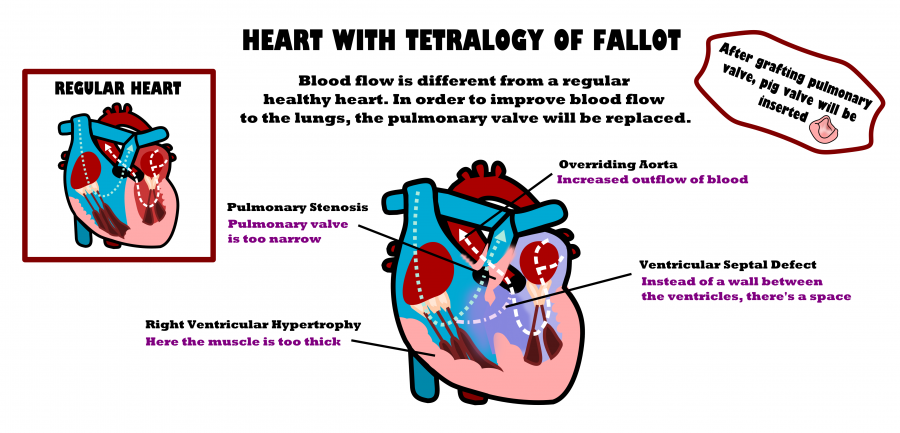Cox Using Pigs To Cure Broken Heart
February 26, 2015
A change of heart is exactly what teacher Whitney Cox is receiving this love season. Cox, who is a new language arts teacher, is awaiting a serious surgery where her Pulmonary Valve will be replaced with a new “pig” one.
Cox was born with the hereditary heart disease Tetralogy of Fallot. Children born with Tetralogy of Fallot do not have enough blood pumped to their lungs, have a narrow Pulmonary Valve and generally look a little grey in color.
“That was me. I was a grey baby,” Cox said “At three days old, I had my first appointment at Primary Children’s Medical Center. They monitored me closely for the first year, knowing that surgery was not an if but a when,” Cox said.
Before Cox was even two, she had her first open heart surgery at Primary Children’s. The repair surgery consisted of splitting open her Pulmonary Valve and grafting in a patch to make it wider.
The unfortunate side effect of the original surgery was a heart murmur. Cox’s artery has a black splash; every time it pumps blood to her lungs, a little bit leaks back into the right ventricle of the heart.
“As long as I can remember I’ve had a murmur. My heart beats: thump, thump, swoosh,” Cox said.
Side effects of the murmur include less ability to pursue physical activity. But that doesn’t stop Cox from doing what she loves. During her high school career, Cox was able to keep up with her peers and compete in volleyball and softball all four years. Today, Cox coaches both volleyball and softball.
Cox’s recent doctor appointment indicated significant swelling of the right ventricle, hence the upcoming surgery.
The process of the surgery is fairly simple. Doctors are going to insert a pig valve into Cox’s Pulmonary Artery which will rid her of the murmur and cause the heart to function as it should.
The Bio prosthetic pig valve will replace Cox’s missing one. Doctors use a pig valve because it’s incredibly similar to that of a humans’ and therefore not foreign to the body.
The actual replacement won’t take long, anywhere from two to 12 hours, and the altogether recovery time is about six weeks. Cox will be in the hospital for about a week, spend two to three days in the Intensive Care Unit and four to five days in a regular room.
Whenever a bypass machine is involved, there are definite chances of complications, however the odds are low. Cox is putting faith in her doctors and is hoping that everything is going to turn out well.
“I was nervous when I first learned I had to have surgery, because this is my first year teaching. Lucky for me, the administrators here at Highland have been nothing but understanding and supportive,” Cox said.
Cox will have to take an extended time off of work and fellow teachers in the English Department have offered Cox teaching material that she can leave with the long-term substitute.
“The person it has affected most has been my mom. Her and my dad were the ones who lived through the scare of my first surgery. They, unlike me, know what’s ahead of me. They’re extremely nervous, but also optimistic,” Cox said.
The surgery hasn’t put a dent in Cox’s marriage but rather the experience is bringing her and her husband closer together. Cox has been married to her husband, Nick, for five years. The two met in High school and started dating in college where they fell in love and got married.
Cox doesn’t think the surgery will be life changing; rather, she believes it’s just a bump in the road. This summer she expects to return to life as usual.
Cox stays strong with the love of her husband, family and her faith.
Cox’s surgery is scheduled for this upcoming March 23 and hopefully Cox’s new heart will be a heart of gold.






























